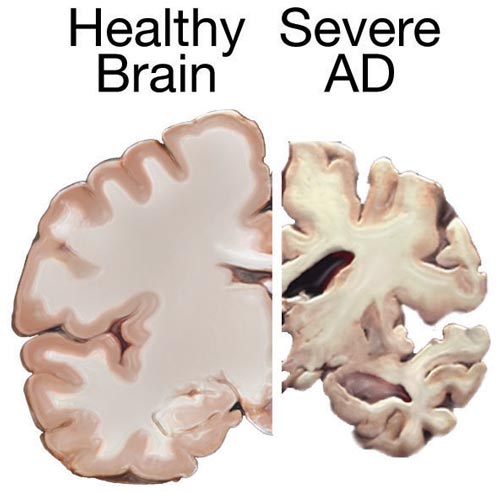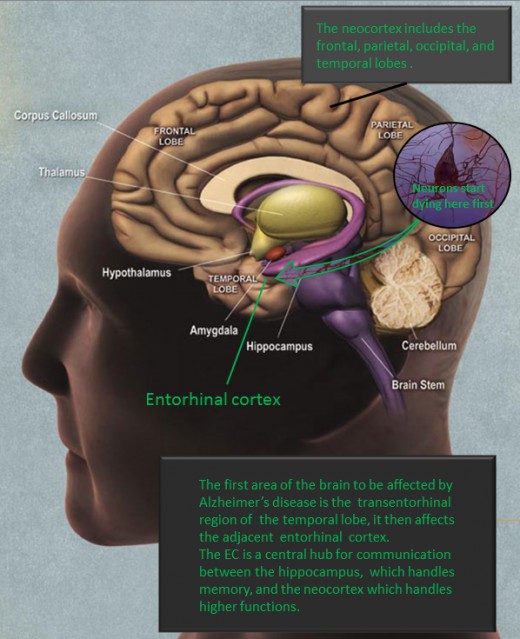Interaction With an Alzheimer's Patient

Introduction
Progressive dementia is one of the most tragic diseases in existence. Not only for the sufferer, but for his loved ones. Walking in to greet a person you have known your whole life, and they do not remember who you are that day. Yesterday they did, tomorrow, they might. But today, you had to remind them. They knew you were someone close to them, just not exactly who. So when they saw you, their eyes still sparkled, they still smiled. This person is still capable of forming full sentences, and understanding concise speech. The difference is now, where they were once able to engage in deep, thoughtful conversation, now they are incapable of progressing beyond small talk.
As time goes by, they will forget you more often than they will remember you. They will mistake you for another loved one. Their ability to comprehend what you are telling them will diminish. Disturbed by noises and sounds that once appealed to them, or at the very least didn't bother them, they are confused by their surroundings. If you try to explain something to them, they just become further frustrated. This sometimes results in an outburst of emotion, sometimes just exasperated withdrawal.
How do you communicate with such a person when you need to, without causing undue distress and hardship on top of what they are already facing? The short answer is, with patience, conciseness, and compassion. However, when dealing with dementia, short answers are often not enough for the loved ones and/or caretakers.
Be Concise
If you are having trouble understanding something, such as how to operate a tool, you are going to need it explained. If the written instructions are excessively wordy, contain a lot of unnecessary filler or jargon, it will be harder to learn what is going on. The same is true if you have someone explaining it to you orally. This is exponentially true for someone who is afflicted with dementia.
When you need to convey an important thought to a person with dementia, speak the way a recruit is taught to speak to his drill sergeant - minus the yelling. Each idea should be expressed in as simple a form as you can, with as few words as possible. If you are assisting them in care at the time, and need them to do something, always precede the instruction by verbally saying their name, and make sure they have processed that and understand that you indeed are speaking to them. Otherwise, they may not realize you are speaking to them; the constant confusion of dementia can cause a loss of focus and attention, and the afflicted person will often tune out of his surroundings. If the task involves multiple steps, give a verbal instruction one step at a time. Do not give any further instruction until each step is completed.
Compassionate Engagement
With dementia, short term memory falters more frequently than long term memory. Thus, the person will often undergo a significant reality shift. This is where your discipline really will be tested. When someone is clearly remembering something incorrectly, or makes an incorrect reference, the reflexive action is to correct them. Unless it is necessary, do not correct the person - it may only cause them frustration. A few minutes later, they may see the situation for what it is anyway. As stated before, memory will often come and go, until the very advanced state.
In a personal experience, when my grandfather was going his reality shifts, instead of arguing or correcting him, one technique I used was to gently try to change the subject to some older memories - long term things that he remembered more clearly, to try to get his mind off of the immediate confusion. If that doesn't work, you can even indulge their perceptions by listening and asking them responsive questions, if the situation is not critical. Attempting to reason them out of it will only cause them irritation.
Pay attention to your own body language, and the volume of your voice. People with dementia often become more sensitive to the body language of others, and can react very strongly to it. They may see sudden hand movements, as well as an elevated voice, as a sign of hostility. Excessive noise should be eliminated; the afflicted often have a heightened sensitivity to loudness and any sort of commotion.

Patience
The third main tenet of interaction is patience. Of the three tenets, you can debate which one is the most important, however for most, this one is probably the most difficult to keep. When you tell a person something, it is naturally frustrating to have to repeat it a few times within the span of only several minutes. It is frustrating, and even very painful, to have to remind them of who you are, if they wonder why you are in their home, or why they should comply with your request.
Always remember, no matter how frustrated you feel, you will not be nearly as much so as they are. Imagine not being able to remember how to do things that once came so easily, you didn't have to think about it. Knowing the identity of the person in front of you, and then the angst of forgetting just minutes later.
A conversation with a dementia patient is very likely to proceed at a considerably slower pace. Don't assume they didn't hear you if they don't answer right away. Sometimes, they are trying to process and comprehend what you told them. In this case, think of their brain as a CPU that has lost a lot of its speed. If you have to repeat something, try to do it in the exact words in which you said it the previous time. Unless you are acting as their caretaker and need them to do something for their own well being, don't try to reason with their flawed perceptions. If necessary, leave the room for a few minutes if one of you is becoming riled; confrontation should be avoided if at all possible.










